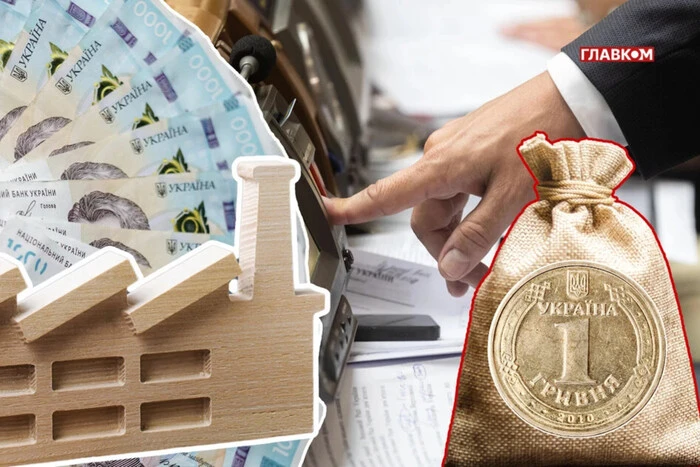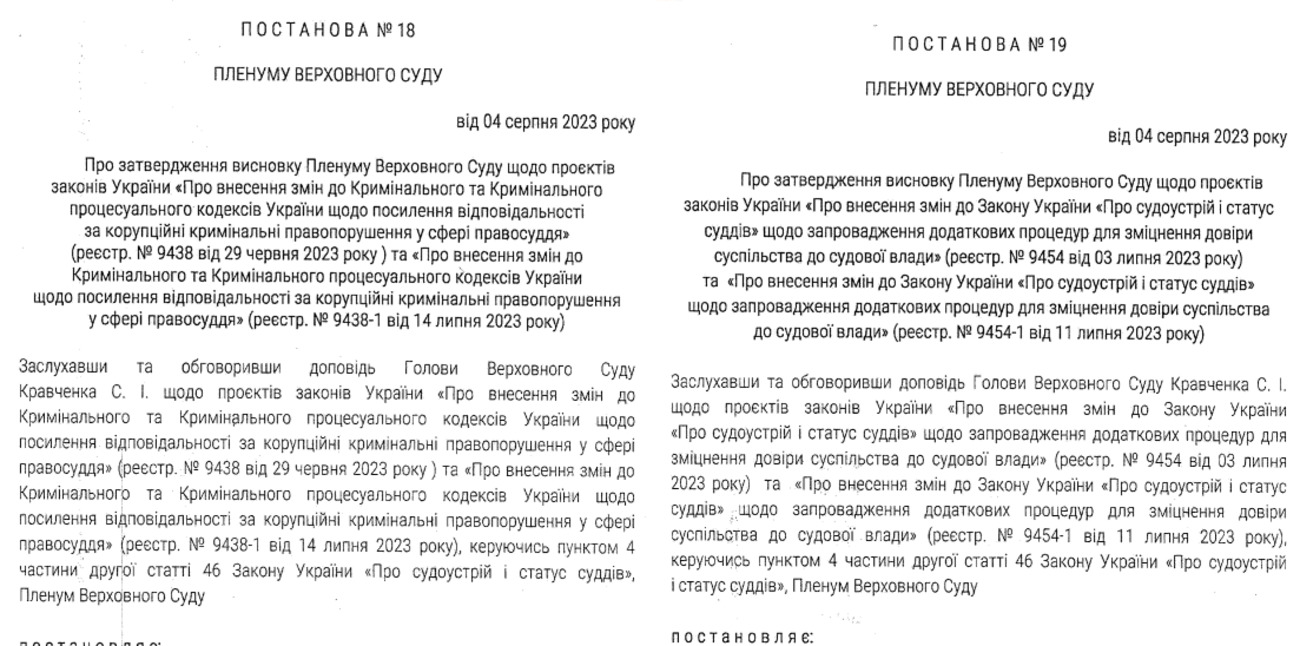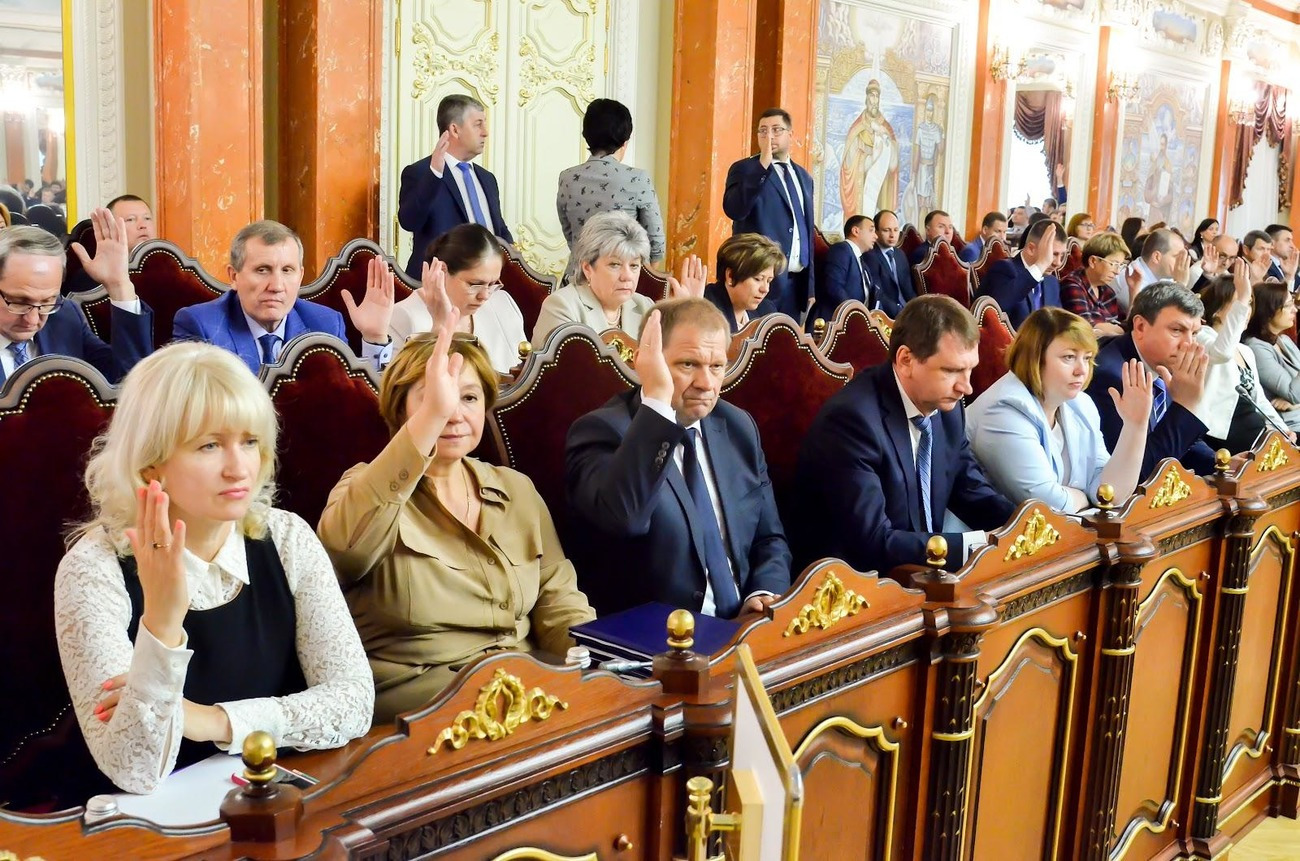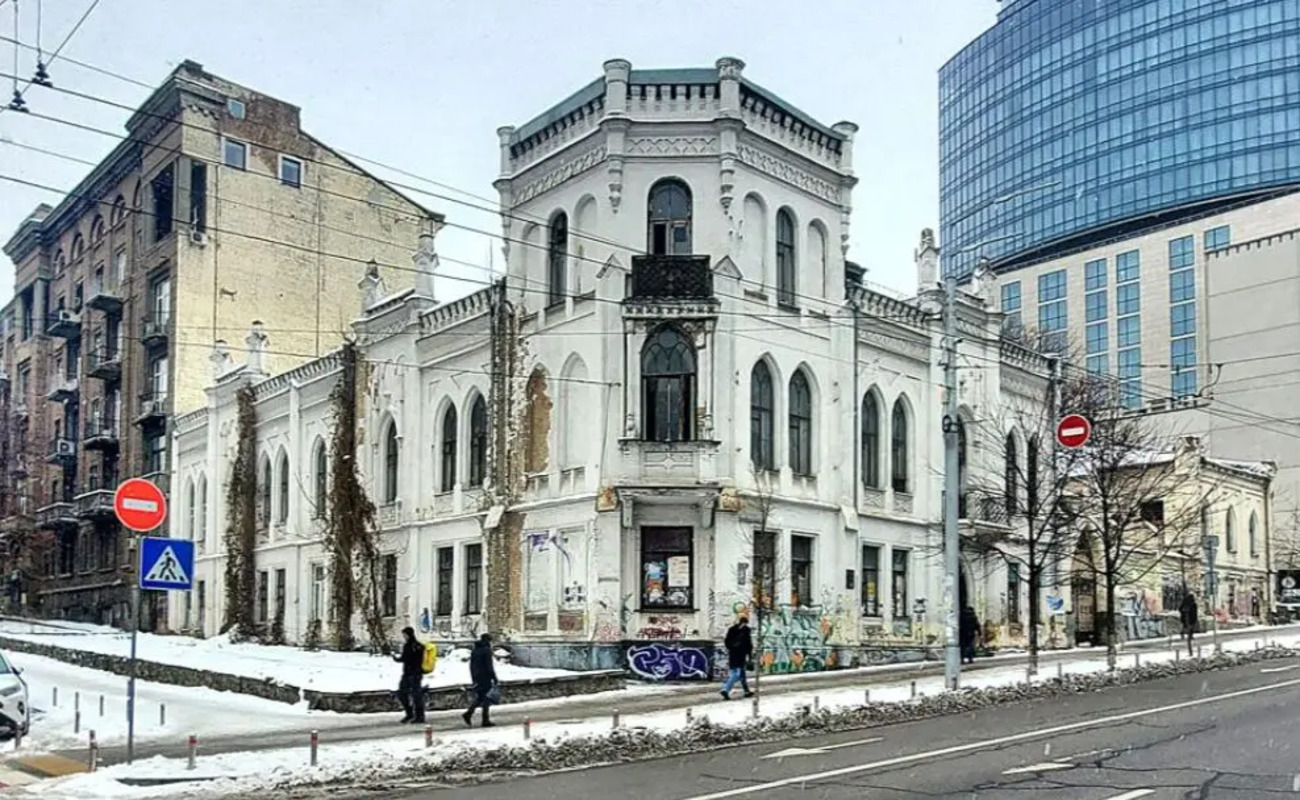Compensation from the budget for… carve-outs. Who in the Parliament proposes to pay them the market value?

Parliamentary lobbyists have figured out how to legalize all property illegally alienated from the state
In October, the Verkhovna Rada registered another bill in the interests of developers (12089). Previously, «amnesty for land grabbers» and carte blanche for the authorities to alienate forests, nature reserves, landscape parks, and coastal strips were offered after five years of property ownership (11185). Now it is proposed we increase this period to ten years.
However, if the state or local community decides to reclaim valuable property, it must deposit its market (!) value to the court’s account. Thus, a developer who has managed to get a plot of land on the coast or in the forest at a reduced price or even for free will return it to the community or the state and receive considerable funds.
This project appeared almost immediately after a working group based on the Legal Policy Committee considered several other projects (11134, 11233, 11185) previously reported by the «Holka» civic initiative.
Supreme Court Judge Vasyl Krat, after a meeting of the working group in the Verkhovna Rada, proposed that the owners whose property is taken away by the state or local community should be returned to market value from the budget. He wrote about this on Facebook. In fact, the MPs made a «combo» – they combined previous scandalous initiatives and registered them in line with Judge Krat’s position.
The new initiative was authored by 20 MPs, including the same «servants of the people» Ihor Fris, Oleksandr Horobets, and Serhiy Bunin, who submitted the projects mentioned earlier in the spring.
Draft law 12089 is to be considered by the Verkhovna Rada Environmental Committee on November 7.
Providing opinions on legislative initiatives is one of the powers of the Supreme Court. Mykhailo Zhernakov, Executive Director of the DEJURE Foundation, emphasizes that the Plenum of the Supreme Court, which includes all judges, can provide its conclusions in support of the draft law:
«In this case, there is an official document. When a judge simply writes a post on Facebook, it is his or her personal opinion, which has nothing to do with the position of the Supreme Court».
«The Holka public initiative appealed to the Supreme Court to find out which bills it had sent to the Verkhovna Rada». In response to the request, we received a letter with annexes referring to the Plenum meetings in August and October 2023. No documents for 2024 were provided.

Thus, Judge Vasyl Krat’s position on the draft laws submitted by MPs in the spring of this year can be concluded to be his position.
The authors of the new draft law (12089) want to legalize all property illegally alienated from the state if more than ten years have passed since the alienation.
Now, when the prosecutor’s office returns the illegally alienated forests or coastline, it can simply go to court. If the Verkhovna Rada supports the legislative initiative, it must do what Judge Krat suggested: deposit the court’s account. This should be the property’s market value, which, after losing in court, will be received by a «bona fide purchaser». In other words, the state may lose, but the developer loses nothing, whether he wins or loses the case.
The explanatory note states that the adoption of the draft law is necessary to balance the interests of the state, the territorial community, and the private owner, to protect the property rights of a bona fide purchaser, and to prevent cases of additional appeals by a bona fide purchaser to the state for compensation for damage caused to them as a result of the reclamation of property.
However, the draft changes the situation solely in favor of the interests of the private owner, who, in any case, becomes a «bona fide» acquirer. In ten years, the state cannot question him, even if he organized the scheme of forest or coastal carving.
The key idea of the lawmakers is to limit the time limit for the state, in whose interests only prosecutors usually go to court, to appeal against court decisions that the state and the community as landowners were unaware of. As a result, many of the dismembered lands of forest, water, nature reserves, recreational, historical, cultural, and other purposes with the established regime of protection and the prohibition of transfer to private ownership by the law will simply be impossible to return through the courts.
The conclusion of the Main Scientific and Expert Department of the Verkhovna Rada states:
«The implementation of the provisions of subparagraphs 3,4 of Part 2 of Article 388 of the Civil Code contains signs of violation of the principle of equality of all subjects of property rights before the law and may lead to the unlawful loss of property owned by the state and the relevant communities».
Borys Indychenko, Head of the Specialized Environmental Prosecutor’s Office of the Prosecutor General’s Office, also emphasizes that there are severe risks and notes that such proposals by lawmakers will deprive the state and communities of the opportunity to protect their property and violated rights:
«Moreover, these changes will legalize the actions of persons who have violated the rights of others, i.e., illegally seized real estate. The exceptions proposed by the draft law, which will not be subject to the limitation period, do not and cannot cover all the objects whose rights will require protection. In particular, such exceptions do not include forest and water fund lands. At the same time, the violated right even to private property that is not included in these exceptions requires judicial protection».
Environmentalists also see a threat in the registered project. Thus, Petro Testov, an analyst at the Ukrainian Nature Protection Group, emphasizes that MPs have turned everyone into «bona fide purchasers».
«How can a person who has cut down a forest or built a mansion in the coastal zone be a «bona fide» purchaser? If this is illegal a priori. How can the market value of the forest be calculated if it is not a subject of market relations? A forest is an ecosystem, not just trees, and restoring it will take at least half a century. The Forest Code states that the forest is a national treasure, and they propose hidden privatization».
But even if the state manages to go to court within ten years, it will have to compensate the property’s market value at the time of the court action, not the value for which the property was transferred from state ownership.
The Main Scientific and Expert Department considers this approach to compensation in the amount of the property’s market value controversial, especially given that a «bona fide» purchaser could have acquired such property at a lower price.
The draft law’s explanatory note also states that in recent years, the Supreme Court has developed an allegedly ambiguous case law that actually substitutes two different types of claims.
To clarify, there is property that can never be private property, such as the coast, the nature reserve fund, or St. Sophia of Kyiv. And the state claims such property through a particular type of lawsuit – adverse claims. Then, there are, for example, agricultural lands or land for construction, which can become private property. But they are not always privatized somewhat. If there has been a scheme or fraudulent decisions, the state can use another type of lawsuit – vindication. In the explanatory note, the lawmakers claim that the Supreme Court has given contradictory practice in applying these two types of claims, but this is different.
So now, lawmakers propose to essentially limit the list of properties that are not subject to privatization. Then, the state will lose the ability to adequately protect everything that is not on the list (through adverse claims).
When filing lawsuits in the state’s interests, prosecutors point out that the lands of the water fund, forestry, and nature reserve fund of Ukraine are under special state protection. Therefore, they are subject to a particular procedure and provision for use. The transfer of such land to private ownership is prohibited.
Natalia Vasylenko, Deputy Head of the Department for Representation of the State in Court of the Prosecutor General’s Office, in her speech at the VII Business & Legal Real Estate Forum in October, noted:
«The occupation of land plots belonging to the categories protected by law (prohibited for privatization) could not be carried out legally, their privatization is expressly prohibited by law, and the statute of limitations does not apply to such disputes».
In addition, Vasylenko noted that in such cases, the state is justified in returning such objects; there is a public interest here, and the European Court of Human Rights recognizes the dominance of the public over the private interest in such a situation.
The Supreme Court has confirmed this position in a significant number of cases involving the alienation of water fund lands, nature reserve lands, monuments prohibited from privatization or during a moratorium (for example, the return of the Tereshchenko estate to the city and the prevention of illegal construction of Karpenko-Kary University and the state-owned enterprise UkrKinoKhronika).
Also, one of the most recent positions of the Grand Chamber of the Supreme Court states that if the state wants to invalidate a property transfer agreement through the court, each party returns to the other what it had before the deal was concluded. In other words, the state must also return what it received from the buyer, but the position does not mention the market value of such property.
The draft law is already being discussed in the public sphere. For example, Supreme Court Judge Dmytro Gudyma, speaking at the XII International Forum on the Practice of the European Court of Human Rights, recently noted that only the court should resolve the issue of balancing the interests of the state and a «bona fide» purchaser. It is also up to the court to decide whether the new owner of the property is bona fide:
«The draft law aims to protect the «bona fide» purchaser. And the state or community, when filing a lawsuit, may believe that their defendant is dishonest. And it is up to the court to decide this when filing a lawsuit. When deciding on the issue of balancing interests, it should be left to the court alone. Because no other authority can balance what it does not see in life».
Judge of the Grand Chamber of the Supreme Court Oleh Tkachuk emphasizes in his commentary to the «Holka»:
«Unfortunately, there are many cases when proposals for changes in legislation are explained by the need to «correct» judicial practice. Such approaches are inconsistent with the constitutional rules on the binding nature of court decisions and the principle of separation of powers. It should also be remembered that the Constitution of Ukraine stipulates that land, its subsoil, atmospheric air, water, and other natural resources located within Ukraine's territory are the Ukrainian people's property. The approach to legalizing the natural and cultural wealth and values stolen from the people can be perceived as evidence that illegal behavior deserves approval».
If the law recognizes all owners as bona fide at once and the state or communities have to deposit such an owner in court, it will be a win-win situation, but only for the owner. The owner will be left with either money or property, and the state or community will lose entirely and will be left either with property for which it will pay the market value or with money but will lose the property. In such circumstances, the question will arise whether it is necessary to go to court. Also, the legislative initiative does not consider that it is expected to use the scheme of land privatization for front persons, i.e., free acquisition of ownership. If the courts cancel the decisions of the authorities that transferred land to private ownership, individuals’ right to privatize is restored. Instead, the lawmakers propose that the state pay for the land.
This legislative initiative is not only promoted by developers’ lobbyists during the war. In the spring, the Ukrainian Parliament registered several laws in the interests of developers. It proposed, among other things, to allow changing the purpose of the land plot if the urban planning documentation is not included in the land cadastre, which is almost the entire territory of Ukraine (11184). In other words, lobbyists have launched a relatively large-scale campaign. The registration of these projects coincided with an information campaign in the media by developer Ihor Mazepa, who argues that claims against business should be «zeroed out».
This text is in Ukrainian
Yurii Melnyk, specially for Glavcom.ua













Коментарі — 0